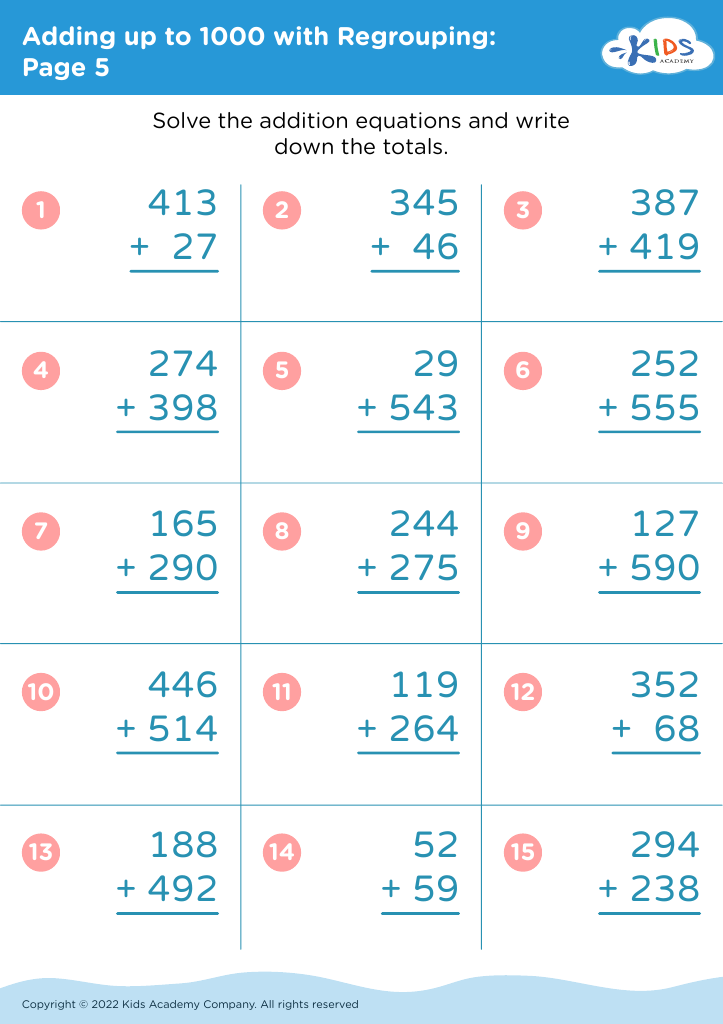Color recognition Adding up to 1000 Worksheets for Ages 3-8
3 filtered results
-
From - To
Explore exciting "Color Recognition Adding up to 1000 Worksheets" designed for ages 3-8! These vibrant, engaging activities seamlessly blend color identification with addition skills, perfect for young learners. Children will have fun while developing early math abilities and practicing color recognition through interactive exercises. The worksheets build a strong mathematical foundation by gradually increasing difficulty, encouraging constant learning progression. With captivating illustrations and creative tasks, kids stay motivated and eager to learn more. Give your child a head start in math and color understanding with these comprehensive, enjoyable resources. Ideal for parents, teachers, and homeschoolers!
Parents and teachers should prioritize color recognition and basic addition skills, such as adding up to 1000, for children aged 3-8 as these form crucial cognitive foundations. Color recognition helps in the development of fine motor skills, visual perception, and memory. Understanding colors not only supports inclusive and descriptive language development but also aids in distinguishing shapes, patterns, and various other enumerable attributes of objects—critical for early literacy skills.
Simultaneously, basic addition acts as a stepping-stone for more advanced mathematical concepts. Familiarity with adding numbers up to 1000 at this formative age fosters cognitive abilities like problem-solving and logical thinking. This builds a solid framework for everyday tasks, enhancing numerical fluency and confidence necessary for academic and real-life scenarios.
Incorporating measured challenges like adding up to 1000 can instill perseverance and a love for learning, ensuring children find math enjoyable and approachable. While focusing on these skills might appear straightforward, their role is instrumental in nurturing well-rounded intellectual development which benefits children throughout their educational journey and beyond. Hence, parents and teachers should invest efforts to promote these skills through playful and engaging activities tailored to young learners.















